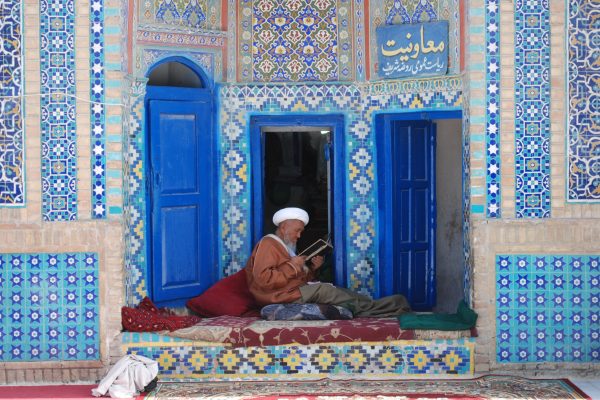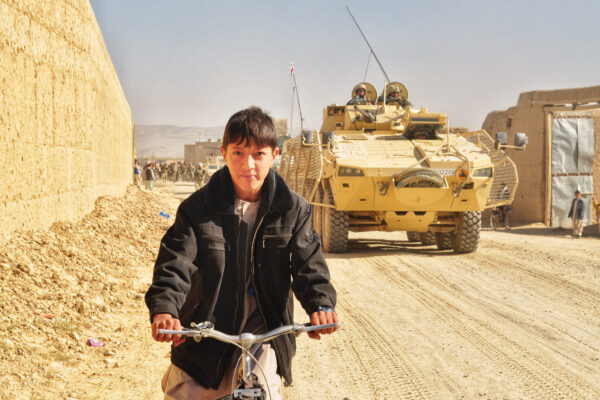The Hazara community, a distinct ethno-religious group residing in Afghanistan, Iran, and Pakistan, has endured centuries of systematic oppression, discrimination, and ethnic cleansing.
The Hazara community, a distinct ethno-religious group residing in Afghanistan, Iran, and Pakistan, has endured centuries of systematic oppression, discrimination, and ethnic cleansing.
The Hazara community, a distinct ethno-religious group residing in Afghanistan, Iran, and Pakistan, has endured centuries of systematic oppression, discrimination, and ethnic cleansing.
With an estimated population of 10-12 million, there has been no accurate census of the Hazara population, but they are usually estimated to be between 10-15% percent of the population of Afghanistan. This number is disputed by the Hazara community, who argue that their numbers are under-represented in order to deny adequate funding and representation politically. Hazaras estimate their population to be closer to 25% of the Afghan population.
The Hazaras face a long history of persecution, beginning in the 1800s and continuing to the present day. This article delves into their tragic history, highlighting the brutal state-building campaigns of Emir Abdur Rahman and the more recent atrocities perpetrated by extremist groups like ISIS, Lashkar e Jhangvi, and Sipah e Sahaba.
Emir Abdur Rahman’s Campaigns
The persecution of Hazaras can be traced back to the 1890s during Emir Abdur Rahman’s rule in Afghanistan.
At the time, Hazarajat, the Hazara homeland, was an independent region. However, the Emir aimed to assert control over this area and ordered the Hazara population to either convert to Sunni Islam or leave the country. When the Hazaras resisted, violence and oppression ensued, resulting in thousands of deaths and the displacement of half the population.
Over 60% percent of Hazaras perished, and the survivors were dispossessed, sold as slaves, or the remaining Hazaras were pushed to the infertile and inhospitable mountains of central Afghanistan to live a precarious existence.
Sunni clerics were sent to Shia mosques, and Emir Rahman granted Hazara pasture lands to Pashtun nomadic tribes who had helped him conquer the region. In a disturbing edict, he called for the death of “infidels,” referring to Shia Hazaras. Hazarajat was occupied and incorporated into the Afghan state in 1883, with Hazara leaders replaced by Pashtun administrators who imposed oppressive taxes on the Hazara population.
Hazaras were enslaved, and the government even levied taxes on their sale. They were systematically denied fundamental human rights, including the right to life, freedom of religion, education, and government employment.
Taliban Atrocities
The Hazara community faced further persecution in the 1990s at the hands of the Taliban. The Taliban’s indiscriminate violence against Hazaras included the massacre of thousands in Mazar-e-Sharif in 1998, where Hazaras were the primary target. The destruction of cultural heritage, such as the ancient Buddha statues in Bamiyan, further aimed to erase Hazara identity.
The Taliban’s reign also saw a surge in attacks on Hazaras, including the abduction and beheading of a nine-year-old girl in 2015, sparking national outrage¹
ISIS and Continued Persecution
The rise of ISIS in Afghanistan led to systematic targeting of Hazaras, including suicide bombings in Kabul. Peaceful Hazara demonstrations and religious festivals were attacked, with hundreds killed and injured.
On August 6, 2017, militants, including ISIS and the Taliban, attacked the Hazara village of Mirza Walang, killing and dismembering over 50 civilians, while the Afghan government provided inadequate security.²
In 2017, several attacks on Shia mosques in Kabul and other cities resulted in the deaths of numerous Hazaras.³ ⁴ ⁵
On March 9, 2018, a blast took place in a Shia area killing at least seven people and many injured.⁶
Persecution in Pakistan
The Hazara community in Pakistan has also suffered grave injustices, with a series of attacks since 2013:
- Quetta Bombing (January 2013): A bomb blast in Quetta targeted a predominantly Hazara neighbourhood, killing nearly 100 people and injuring many others.
- Hazara Town Attack (February 2013): A bomb attack in Hazara Town, Quetta, killed over 80 people and injured many more.
- Bus Attack in Quetta (June 2015): Gunmen attacked a bus carrying Hazara passengers in Quetta, resulting in multiple deaths and injuries.
- Mastung Attack (July 2018): A suicide bombing in Mastung, Balochistan, targeted a political rally, resulting in the deaths of over 130 people, including many Hazaras.
- Quetta Bombing (April 2019): A suicide bombing in a Hazara-dominated area of Quetta killed at least 20 people and injured many others.
- Quetta Vegetable Market Attack (April 2019): A bomb blast at a vegetable market in Quetta killed at least 20 people and injured numerous others.
- Civil Genocide (October 2023): The most recent attack occurred in the last week of October 2023, highlighting the continued vulnerability of the Hazara community. Despite the severity of these events, media coverage has been limited, and information is scarce.
Officials have not passed a single statement on this civil genocide going against the innocent people of Hazara, despite the fact that social media activists are constantly raising their voices to spread the word to stand with the people of Hazara.
The way to Parachinar where Hazara people are getting killed is blocked by the forces and no one is allowed to go there to help them while they are being killed in a genocide. Many are facing a lack of food, resources, and weapons, the local community members are fighting on their own to protect their families. It is reported by our sources that more than 20 people have been killed, but these are not the confirmed numbers because the government is not bothering with this and many people have been injured as well.
Our neighbouring country Afghanistan is supporting all these groups in attacking Shias in Pakistan and providing them with finances and war equipment, where they are openly killing Shias Muslims. The government is not stopping them and not investigating how are they getting weapons from Afghanistan without letting anyone know.
It is not the first time that our establishment has not spoken for the innocent people of the Hazara community, but it has been same throughout the history. It is our responsibility to raise awareness and let the world know the truth.
A Call for Unity and Action
The plight of the Hazara community, both in Afghanistan and Pakistan, is a tragic chapter in human history. While the world’s attention is often focused on other conflicts, it is essential that we raise our voices in solidarity with the Hazaras. Regardless of sect, caste, faith, or religion, the suffering of the Hazara community should not be ignored.
Extremist organisations like ISIS, Lashkar e Jhangvi, and Sipah e Sahaba are seeking to eradicate the Hazara community based on their religious beliefs. The media, government, and security forces must not remain silent. The international community should stand together to condemn these acts of violence and work towards ensuring the safety and rights of the Hazara people.
The information provided in the aforementioned article are extracted from the Hazara Research Written Evidence from the Committees of Parliament Of the United Kingdom.
Reference
Hazara Research Collective -Written evidence (AFG0008) https://committees.parliament.uk/writtenevidence/11165/pdf/





